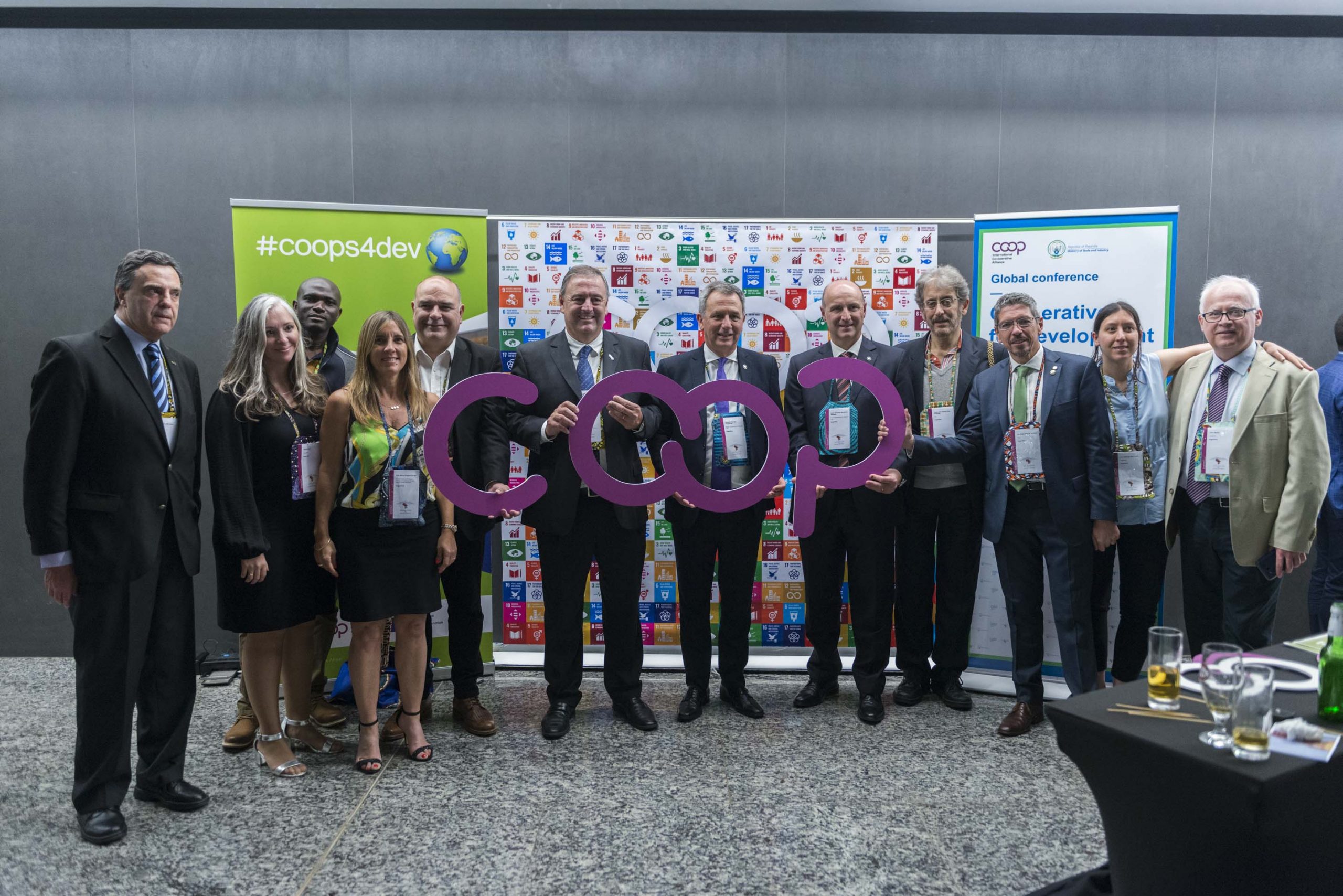
Cooperative businesses are present in every sector around the world, sharing a common identity through values and principles. These set cooperatives apart from traditional businesses, putting control in the hands of members to enable them to address today’s challenges in a fair, equal and considerate way.
At the 2021 ICA World Cooperative Congress, delegates will examine what cooperative identity means in practice and how different organisations strengthen, commit to and live this identity.
In some examples, this means having a strong cooperative brand – one that publicly highlights an organisation’s commitment to a better way of doing business that puts people first. For some, this includes using the Cooperative Marque, as part of their own visual branding. The Marque was unveiled at the ICA’s Global Conference in Cape Town, South Africa, in 2013 as a new visual identity for the global movement and is today used by thousands of businesses in hundreds of countries around the world.
But alongside a strong brand, cooperatives must demonstrate their identity through their actions: through governance, through educational opportunities and through encouraging, supporting and taking part in grassroots efforts that enable new and emerging cooperatives to grow and flourish in a region or a sector where a cooperative solution can solve a particular need.
All of these ideas will be discussed at the World Cooperative Congress in Seoul, Republic of Korea, in December – as will the idea of how cooperative identity can be examined through acknowledging its cultural heritage, and the impact of its legacy.
In 2016, UNESCO recognised cooperatives as an Intangible Cultural Heritage of Humanity, following a submission by the German Hermann-Schulze-Delitzsch Society e.V. and the German Friedrich-Wilhelm Raiffeisen Society e.V. on behalf of their members.
The “idea and practice of organising shared interests in cooperatives” was worthy of being acknowledged by UNESCO as the idea would show a new facet of intangible cultural heritage, they said at the time. “[Cooperation] can manifest itself in a form of social self-organisation contributing to structure life in all kinds of groups, communities and even whole societies … Inscribing the element would demonstrate clearly the shared asset of intangible cultural heritage to be community-based.”
The cooperative movement in Germany has around 20 million members (a quarter of the population) and employs over 860,000 people. UNESCO’s decision was an important acknowledgement of the dedication shown by millions of people working in cooperatives all over the world – and the inscription brought to new audiences to cooperatives, showing how cooperative values and principles are shared by members worldwide.
The World Cooperative Congress is another opportunity to promote cooperatives and strengthen the pride in cooperative identity. Through examining our identity we can strengthen it, commit to it and live it – to ensure cooperation is alive and well for future generations around the world.
Find out more about the ICA Word Cooperative Congress – and register your interest – HERE.
The theme of the 2021 World Cooperative Congress is ‘Deepening our Cooperative Identity’. Within this, four strands will explore how cooperatives examine, strengthen, commit to and live the cooperative identity. Read more on these themes in future ‘Destination Congress’ newsletters!
